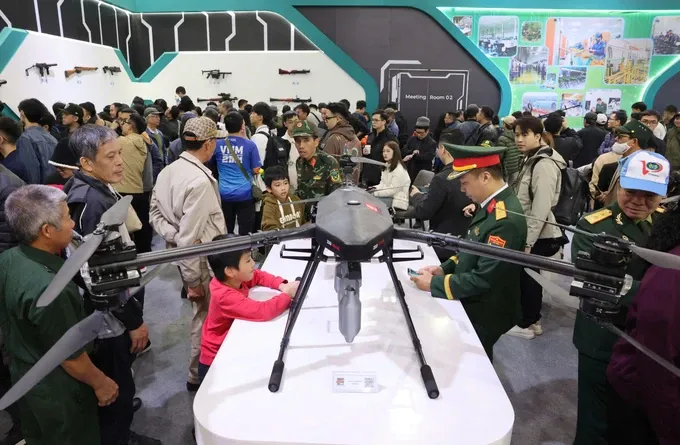
Recent data from the Ministry of Science and Technology reveals that after nearly a decade of nurturing, Vietnam’s innovative startup ecosystem now encompasses over 4,000 dynamic entities, ranging from fledgling enterprises to established organizations and driven individuals.
Notably, four groundbreaking innovative startup models have successfully secured funding exceeding US$1 billion each – VNG, VNPay, Momo, and Sky Mavis – while an additional eleven ventures have attracted investments surpassing $100 million. Furthermore, the landscape boasts 208 active venture capital funds and over 1,400 support organizations dedicated to empowering these nascent businesses and individuals.
By 2019, Vietnam had ascended to the third place among ASEAN nations in innovative startup ecosystem growth rate, trailing only Indonesia and Singapore. Impressively, in 2024, Vietnam’s global startup ecosystem ranking climbed two positions to 56th (fifth in Southeast Asia and twelfth in the Asia-Pacific region).
Vietnam’s Global Innovation Index has also shown consistent improvement, reaching 44th out of 133 global economies in 2024. Nevertheless, the period since 2021 has presented significant headwinds, with both the global and Vietnamese economies experiencing considerable challenges and a noticeable slowdown.
Seriously, Vietnam has not witnessed any new billion-dollar funding rounds for innovative startup models or businesses since December 2021. These startups predominantly cluster in major urban centers like Hanoi, HCMC, Da Nang City, and Hai Phong City, with the majority valued below the $1 million mark.
The need for a deeper and broader innovation ecosystem, one that provides fertile ground for nurturing young innovative startup businesses, is readily apparent. A primary hurdle, consistently highlighted by entrepreneurs, is access to capital.
Nguyen Chi Dung, a long-standing champion of this sector since his tenure as Minister of Planning and Investment and later as Deputy Prime Minister, has repeatedly stressed that investment in innovation demands a long-term perspective, often requiring acceptance of significant risk beyond immediate profit considerations.
Speaking at the recent Vietnam Innovation Investment Forum 2025 (VIPC Summit 2025) on April 22, Deputy Prime Minister Nguyen Chi Dung issued a compelling call to action for investment funds, financial institutions, and leading global corporations to make swift and substantial investment decisions, enabling Vietnam to truly become an “effective absorption point” for private capital directed towards strategic technology industries.
The reality is that an evident wave of investment is already flowing into high-tech and innovation sectors. Artificial intelligence (AI), with its transformative breakthroughs, is particularly capturing the attention of global strategic investors. However, securing sustained investor confidence hinges on establishing a robust and transparent legal framework.
A key priority for the upcoming 9th session of the 15th National Assembly is the codification of Resolution 57-NQ/TW into a series of laws, most notably the Law on Science-Technology and Innovation. Numerous provisions within other relevant legislation concerning investment, enterprises, bidding, customs, public investment, and even the Land Law are also undergoing amendments and supplements to align with the spirit of this crucial resolution.
According to Deputy Director Do Tien Thinh of the National Innovation Center (NIC – under the Ministry of Finance), accessing cutting-edge technology, fostering technology transfer, and forging strategic collaborations with global tech giants like Intel, Amkor, Samsung, and Nvidia necessitates a well-structured, synchronized, and long-term national strategy for human resource training and development in high-tech fields.
The Deputy Director advocates for bolstering domestic training programs, followed by sending promising students to study in technologically advanced nations to gain practical, real-world experience before returning to contribute to Vietnam’s development. This endeavor requires a concerted effort from the state, businesses, families, and the talented students themselves.
Deputy Prime Minister Nguyen Chi Dung emphasized that businesses themselves must adopt a more proactive stance in participating in networking forums, engaging in concrete discussions about business investment orientations and mutual potential advantages, while swiftly establishing practical and effective collaboration mechanisms to truly cultivate a thriving “ecosystem”.
Simultaneously, ministries, branches, research institutes, universities, and innovation centers must continue to serve as effective support agencies, providing timely and efficient services to businesses, funds, and investing organizations and individuals.
























